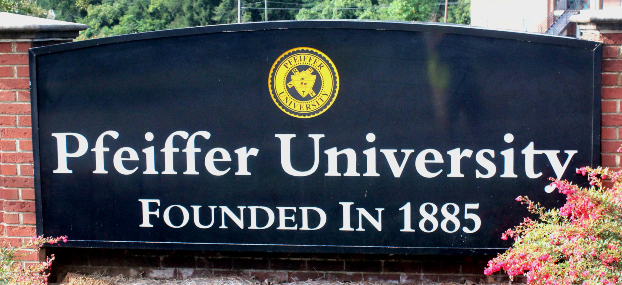NC Community College System selects president
Published 5:06 pm Monday, December 14, 2020
|
Getting your Trinity Audio player ready...
|
Thomas Stith III, a leader with two decades of experience in public service and business in North Carolina, was elected the next president of the NC Community College System on Monday by the State Board of Community Colleges.
Stith is currently district director of the U.S. Small Business Administration, where he has led the federal agency’s response to COVID-19 in North Carolina, resulting in more than $16 billion in support for small businesses in the state.
Breeden Blackwell, chair of the State Board, said Stith’s track record in business and government will serve the state’s 58 community colleges well.
“Thomas Stith is a proven leader with a broad network of relationships in business, education and government in North Carolina,” Blackwell said. “He has the skills and talents to lead our great community college system at a critical time. The colleges will play an essential role in North Carolina’s economic recovery from the pandemic.”
Stith said he is committed to serving students and supporting the colleges as they develop the workforce and extend affordable education to residents.
“My vision for the North Carolina Community College System is guided by the principle that education translates into opportunity,” he said. “The North Carolina Community College System will lead our state’s economic recovery by providing education and training for our diverse population. The system will become a national model for educational excellence.”
Stith will begin his new role on Jan. 11. He succeeds Interim President Dr. William Carver and former President Peter Hans, who became president of the University of North Carolina System in August.
Stith has extensive experience in economic development and government relations. He was chief executive of several businesses and consulting firms, including the Michael Thomas Group in Durham and LJP Lab, a toxicology lab and health care consulting company in Kernersville.
He served as chief of staff to former Gov. Pat McCrory from 2013 to 2017 and was a three-term city council member in Durham from 1999 to 2007. During his time in the Governor’s Office, he led special initiatives on historically black colleges and universities and Hurricane Matthew recovery.
His higher education experience includes five years as economic development program director at UNC-Chapel Hill’s Kenan Institute of Private Enterprise at the Kenan-Flagler Business School, from 2008 to 2013. There he focused on improving Eastern North Carolina economies, securing grant funds and managing renewable energy projects.
Stith holds a bachelor’s degree in management and a Master of Business Administration in marketing from North Carolina Central University, as well as a certificate in nonprofit management from Duke University.
He has served on the boards of the Golden LEAF Foundation, the Kenan Institute of Private Enterprise, the North Carolina Institute of Political Leadership and the United Way of the Greater Triangle. He is a member of the North Carolina Leadership Forum and a deacon at Union Baptist Church in Durham.
He currently lives in Charlotte with his wife Yolanda. The couple have three daughters – Kara, Kiah and Kira.
The Presidential Search Committee began its work in July. Dozens of candidates were considered before the committee narrowed the pool to several finalists. The committee sought and received input from the N.C. Association of Community College Presidents and the N.C. Association of Community College Trustees.
“We were very fortunate to have a strong pool of candidates in this search,” said Bob Stephens, chair of the Presidential Search Committee. “That is a testament to the high regard with which people hold our community colleges. In the end, the choice was clear and unanimous.”
North Carolina’s 58 community colleges serve about 700,000 students a year in associate degree programs, university transfer programs, short-term workforce training, high school dual enrollment, career and technical education and adult basic education.






